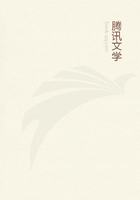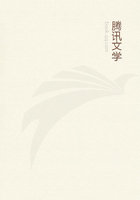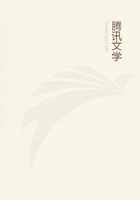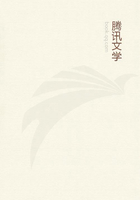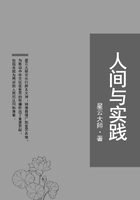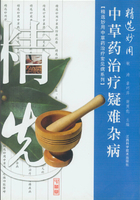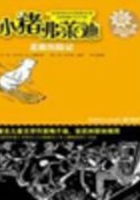Stephen turned towards his companion and looked at him for a moment boldly in the eyes. Lynch, recovering from his laughter, answered his look from his humbled eyes. The long slender flattened skull beneath the long pointed cap brought before Stephen's mind the image of a hooded reptile.
The eyes, too, were reptile-like in glint and gaze. Yet at that instant, humbled and alert in their look, they were lit by one tiny human point, the window of a shrivelled soul, poignant and self-embittered.
-- As for that, Stephen said in polite parenthesis, we are all animals.
I also am an animal.
-- You are, said Lynch.
-- But we are just now in a mental world, Stephen continued. The desire and loathing excited by improper esthetic means are really not esthetic emotions not only because they are kinetic in character but also because they are not more than physical. Our flesh shrinks from what it dreads and responds to the stimulus of what it desires by a purely reflex action of the nervous system. Our eyelid closes before we are aware that the fly is about to enter our eye.
-- Not always, said Lynch critically.
-- In the same way, said Stephen, your flesh responded to the stimulus of a naked statue, but it was, I say, simply a reflex action of the nerves.
Beauty expressed by the artist cannot awaken in us an emotion which is kinetic or a sensation which is purely physical. It awakens, or ought to awaken, or induces, or ought to induce, an esthetic stasis, an ideal pity or an ideal terror, a stasis called forth, prolonged, and at last dissolved by what I call the rhythm of beauty.
-- What is that exactly? asked Lynch.
-- Rhythm, said Stephen, is the first formal esthetic relation of part to part in any esthetic whole or of an esthetic whole to its part or parts or of any part to the esthetic whole of which it is a part.
-- If that is rhythm, said Lynch, let me hear what you call beauty;
and, please remember, though I did eat a cake of cowdung once, that I admire only beauty.
Stephen raised his cap as if in greeting. Then, blushing slightly, he laid his hand on Lynch's thick tweed sleeve.
--We are right, he said, and the others are wrong. To speak of these things and to try to understand their nature and, having understood it, to try slowly and humbly and constantly to express, to press out again, from the gross earth or what it brings forth, from sound and shape and colour which are the prison gates of our soul, an image of the beauty we have come to understand - that is art.
They had reached the canal bridge and, turning from their course, went on by the trees. A crude grey light, mirrored in the sluggish water and a smell of wet branches over their heads seemed to war against the course of Stephen's thought.
-- But you have not answered my question, said Lynch. What is art? What is the beauty it expresses?
-- That was the first definition I gave you, you sleepy-headed wretch, said Stephen, when I began to try to think out the matter for myself. Do you remember the night? Cranly lost his temper and began to talk about Wicklow bacon.
-- I remember, said Lynch. He told us about them flaming fat devils of pigs.
-- Art, said Stephen, is the human disposition of sensible or intelligible matter for an esthetic end. You remember the pigs and forget that. You are a distressing pair, you and Cranly.
Lynch made a grimace at the raw grey sky and said:
-- If I am to listen to your esthetic philosophy give me at least another cigarette. I don't care about it. I don't even care about women. Damn you and damn everything. I want a job of five hundred a year. You can't get me one.
Stephen handed him the packet of cigarettes. Lynch took the last one that remained, saying simply:
-- Proceed!
-- Aquinas, said Stephen, says that is beautiful the apprehension of which pleases.
Lynch nodded.
-- I remember that, he said, Pulcra sunt quae visa placent . -
He uses the word visa , said Stephen, to cover esthetic apprehensions of all kinds, whether through sight or hearing or through any other avenue of apprehension. This word, though it is vague, is clear enough to keep away good and evil which excite desire and loathing. It means certainly a stasis and not a kinesis. How about the true? It produces also a stasis of the mind. You would not write your name in pencil across the hypotenuse of a right-angled triangle.
-- No, said Lynch, give me the hypotenuse of the Venus of Praxiteles.
-- Static therefore, said Stephen. Plato, I believe, said that beauty is the splendour of truth. I don't think that it has a meaning, but the true and the beautiful are akin. Truth is beheld by the intellect which is appeased by the most satisfying relations of the intelligible; beauty is beheld by the imagination which is appeased by the most satisfying relations of the sensible. The first step in the direction of truth is to understand the frame and scope of the intellect itself, to comprehend the act itself of intellection. Aristotle's entire system of philosophy rests upon his book of psychology and that, I think, rests on his statement that the same attribute cannot at the same time and in the same connexion belong to and not belong to the same subject. The first step in the direction of beauty is to understand the frame and scope of the imagination, to comprehend the act itself of esthetic apprehension. Is that clear?
-- But what is beauty? asked Lynch impatiently. Out with another definition.
Something we see and like! Is that the best you and Aquinas can do?
-- Let us take woman, said Stephen. -- Let us take her! said Lynch fervently.
-- The Greek, the Turk, the Chinese, the Copt, the Hottentot, said Stephen, all admire a different type of female beauty. That seems to be a maze out of which we cannot escape. I see, however, two ways out. One is this hypothesis:that every physical quality admired by men in women is in direct connexion with the manifold functions of women for the propagation of the species.
It may be so. The world, it seems, is drearier than even you, Lynch, imagined.

